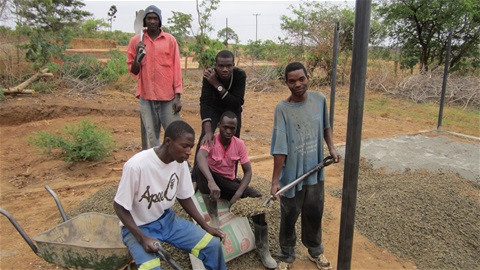Zimba Centre for Rural and Youth Development started operating in1978 by the Holy Rosary Sisters under the auspices of the Diocese of Monze. Back then, the waning social and economic prospects of the youths within Zimba was the main motivation that compelled the establishment of the Centre. From the onset, the initiative proved transformative for the youths who had lost hope of realizing their full potential and niche in life. Most girls who would be confined to perpetual servitude due to gender dynamics in families and community were afforded an avenue for personal growth. Most families placed a low premium –hence denying them an opportunity for education on an equal basis with boys. With most girls poised for early marriages once dropping out of school, the Centre presented a refuge that was to prompt community introspection of early marriages.
The emergence of HIV and AIDS in the 80s created another social and economic burden. The high mortality rates prior to the availability of Antiretroviral Therapy swelled most families with a horde of orphans. With most breadwinners dying, the escalating number of orphans dropped out of school. The Centre absorbed most of these unfortunate children in it courses. Initially planned to cover the 50kms radius of Zimba District, by 2012, the centre has a coverage beyond southern Province.
Currently ZCRYD offers the following courses:
- Design, Cutting and Tailoring
- Bricklaying and Plastering
- Carpentry and Joinery
- Computer studies
- Food Production
- General Agriculture
Due to social and economic hardships, most students enrolling at Zimba Centre for Youth and Rural Development are unable to pay their comparatively low tuition fees.In the past, the institution had partnered with CIND, a local NGO which payed for the most vulnerable students. However, due to dwindling donor support, the NGO has since phased out. This has greatly impacted the enrolment levels and the institutions is grappled with administrative and operational bottlenecks. The small fees paid by the students enable the institution to pay the supporting staff.
Adminstrative and operational costs are currently dependent on the erratic production units sales from each department.
With the accreditation to Technical Education, Vocational and Entrepreneurshp Authority(TEVETA), and its requirement for the recruitment of professional staff, the institution is faced with the challenge of financial capacity.

Felix mulenga
I want to apply for this opportunity